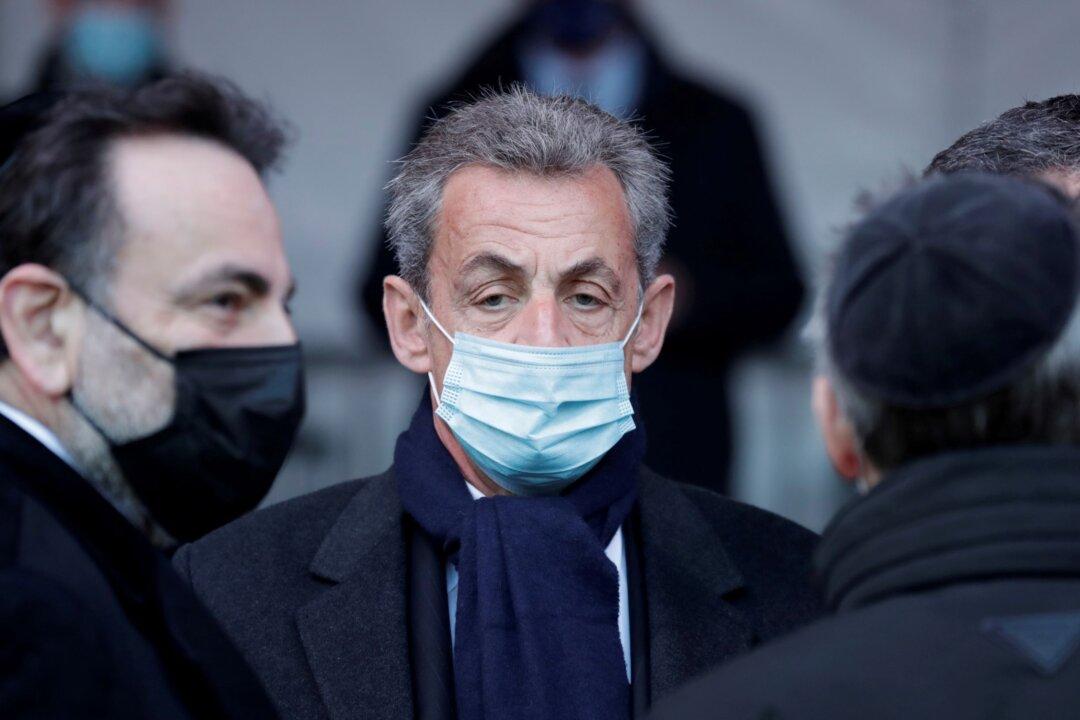PARIS—Former French president Nicolas Sarkozy went back on trial on Wednesday, this time on charges of illegally financing his failed 2012 re-election bid, but judges adjourned proceedings due to the absence of a defence lawyer sick with COVID-19.
Sarkozy, 66, was not present for the opening of the trial, which comes less than three weeks after he was sentenced to three years in prison for corruption and influence-peddling.





